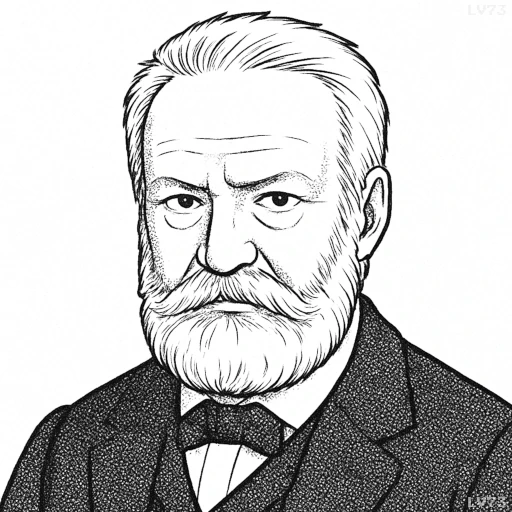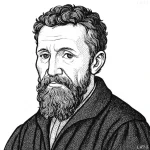“Dear God! how beauty varies in nature and art. In a woman the flesh must be like marble; in a statue the marble must be like flesh.”

- February 26, 1802 – May 22, 1885
- Born in France
- Author, poet, playwright
table of contents
Quote
“Dear God! how beauty varies in nature and art. In a woman the flesh must be like marble; in a statue the marble must be like flesh.”
Explanation
Victor Hugo’s quote explores the contradictory relationship between nature and art in terms of beauty. He suggests that the ideal of beauty in a woman is one in which her physical form is flawless, almost sculptural, as if her flesh were made of marble—perfect, smooth, and eternal. In contrast, when it comes to a statue—which is an artistic representation of the human form—marble must take on the appearance of flesh, conveying life and vitality through the sculptor’s skill. The juxtaposition of these two ideals emphasizes how art seeks to replicate or even transcend the imperfections of nature, while nature itself is considered beautiful when it approaches the idealized forms of art.
Hugo’s words reflect the Romantic era’s preoccupation with the ideals of beauty and the tension between reality and idealization. In art, beauty is often seen as something to be perfected or transformed, whereas in nature, it is celebrated for its organic flaws and imperfections. The quote might also suggest that both in human beauty and in art, there is a tension between the real and the ideal—the way in which we look to art to capture the essence of life, while simultaneously idealizing the human form or experience.
In modern terms, this quote touches on the idealization of beauty in both art and society. It highlights how in the pursuit of perfection, we sometimes impose artificial standards on what is natural. In a world dominated by media representations of beauty, Hugo’s words offer a commentary on how we often aspire to an ideal that is both unattainable and unnatural, whether in the context of human appearance or artistic creation. It challenges us to rethink the balance between natural beauty and artificial ideals, encouraging a more authentic approach to both life and art.
Would you like to share your impressions or related stories about this quote in the comments section?


